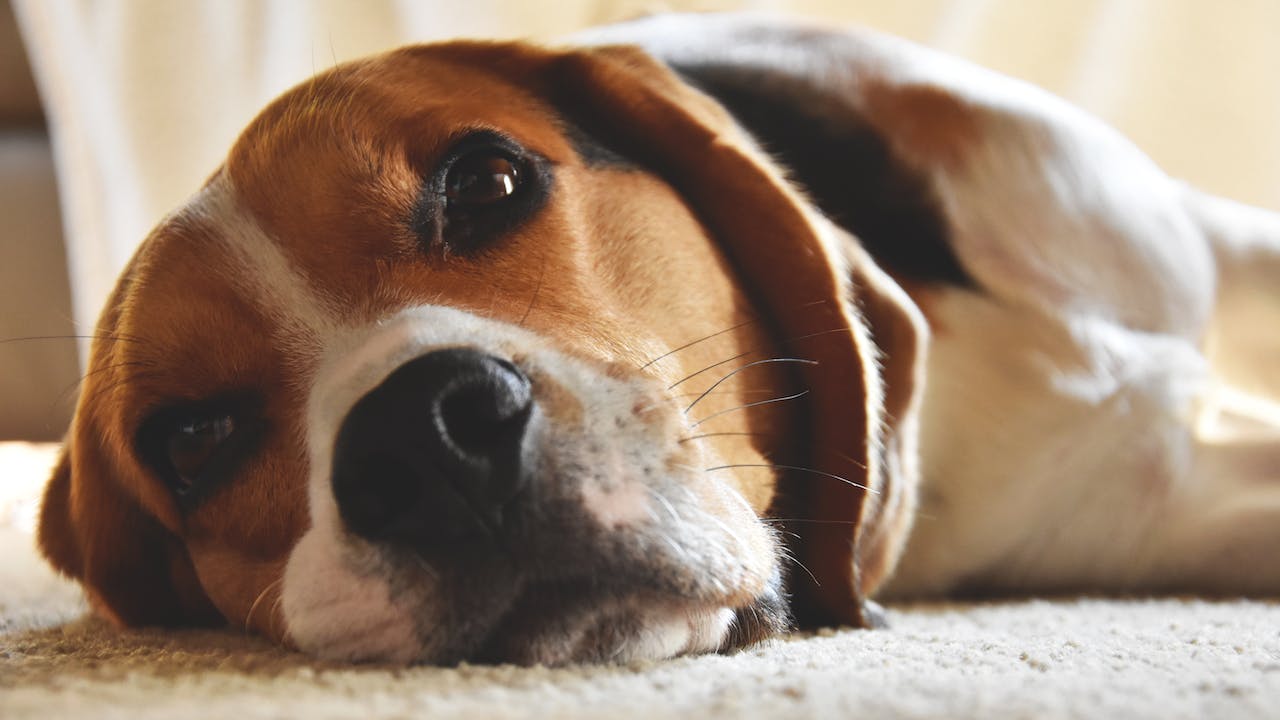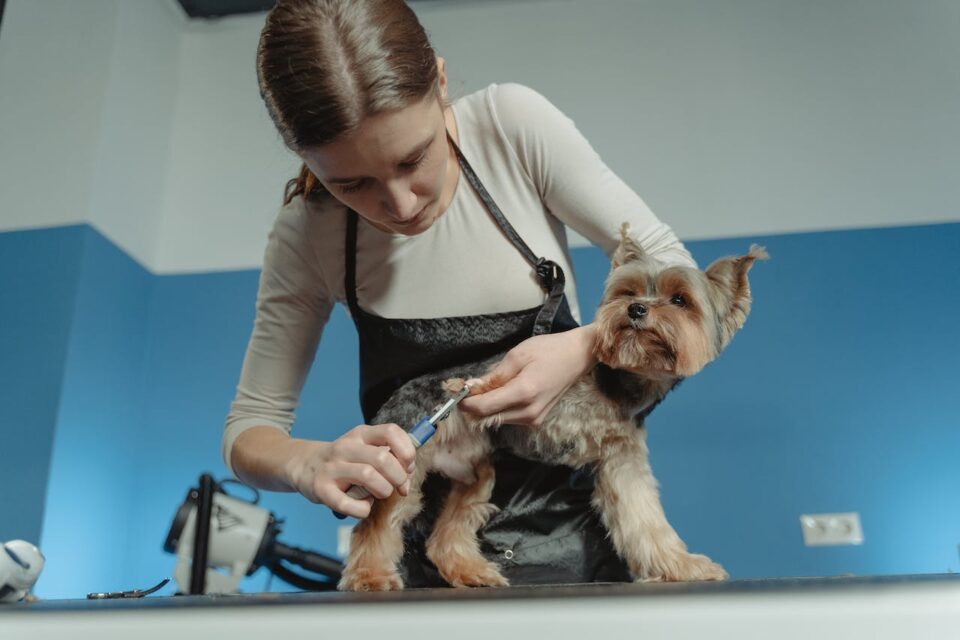
Effects of Cutting Dog Whiskers: What Dog Owners Should Know
Dog whiskers, or vibrissae, are not just ordinary hair; they serve as important sensory tools. They help your dog navigate their environment, sense nearby objects, and even communicate emotions.
Understanding the function and importance of these whiskers is essential. You may have wondered whether trimming or cutting your dog's whiskers is harmless.
Let's talk about the vital role dog whiskers play, the impact of cutting them, and why veterinarians generally advise against it. Discover the difference between common myths and the facts about dog whiskers.
Keep reading to gain a deeper understanding of how to care for your dog's whiskers and learn why they are an essential aspect of your dog's sensory world.
The Anatomy of Dog Whiskers
Dog whiskers differ significantly from regular fur. They are typically located on the muzzle, above the eyes, and below the jaw. Whiskers are connected to nerves, making them highly sensitive. They play a crucial role in a dog's spatial awareness, helping them detect changes in their surroundings through touch and air movements.
Why Dogs Have Whiskers
Whiskers act as a vital sensory tool for dogs. They aid in navigation, especially in low-light conditions, and are instrumental in detecting nearby objects and movements. These sensory hairs also play a role in communication and social interactions between dogs. Additionally, they offer protection for a dog's eyes and face from potential harm.
Related: Natural Remedies for Dog Arthritis: Easing Canine Joint Discomfort
Common Myths About Dog Whiskers
There are several myths surrounding dog whiskers. Contrary to popular belief, whiskers are not the same as fur, and cutting them is not akin to a simple trim. Dogs do feel their whiskers, which are sensitive and connected to nerve endings.
Whiskers don't need regular trimming as they don't grow continuously like fur. Trimming whiskers does not enhance a dog's appearance and can harm their well-being.
The Impact of Cutting Whiskers on Dogs
Cutting a dog's whiskers can lead to disorientation and confusion. It significantly reduces their spatial awareness and can impact their navigation skills. This alteration may cause increased anxiety or stress in dogs as they struggle to detect objects and movements in their vicinity.
Related: Exploring Holistic Care for Dogs
Behavioral Changes in Dogs Without Whiskers
Dogs without whiskers may exhibit increased cautiousness and decreased playfulness. There can be a noticeable change in their interactions with other animals and exploration habits. They may become more easily startled or exhibit skittish behavior due to losing this vital sensory tool.
Physical and Emotional Effects on Dogs
Cutting whiskers can cause sensitivity or discomfort at the whisker base. The emotional impact includes stress or anxiety due to sensory loss. Dogs rely on their whiskers for protection, and without them, they are at increased risk of face and eye injuries. The long-term effects can also impact a dog's confidence and overall well-being.
Related: How to Treat an Open Wound on a Dog: First Aid Tips
Veterinary Perspective on Trimming Dog Whiskers
Veterinarians generally advise against the trimming of dog whiskers. There are specific situations where trimming might be medically necessary, but these are rare.
Veterinarians approach whisker trimming cautiously and emphasize the importance of professional advice before proceeding. Post-trimming care and observation are essential to ensure the dog's well-being.
Grooming and Care of Dog Whiskers

Proper grooming of dog whiskers requires specific techniques that avoid accidental trimming. It's essential to know how to clean around the whiskers without causing damage. Regular health checks for the whisker area are crucial to maintain their health and function. Tips for preserving whisker health include gentle cleaning and avoiding rough handling.
Want to make trips to the groomers easier for your fur baby? Make sure to use Calming Pet Spray before grooming to make them more comfortable!
How Dogs Compensate for Lost Whiskers
When dogs lose their whiskers, they may experience adjustments in their sensory perception. They might rely more on their other senses and show behavioral adaptations to compensate for the sensory loss. Observing changes in habits can help understand how a dog is coping. Despite their resilience, dogs may face challenges adapting to these changes.
Owner Awareness and Responsible Care
Educating dog owners about the importance of whiskers is vital in promoting responsible grooming practices. Owners should recognize signs of discomfort in their dogs and understand their role in ensuring their pets' well-being. Resources and information on proper dog care are important for responsible pet ownership.
Alternatives to Whisker Trimming
There are non-invasive grooming options that respect the integrity of a dog’s whiskers. It is essential to understand when to leave whiskers alone and how to groom them without affecting them. Seeking professional grooming advice can help maintain a dog's natural beauty and health without resorting to aesthetic modifications that could be harmful.
Looking for an easy way to pamper your pets? Try Holistic Infused Grooming by Gou Gou Pets to turn bathtime into spa time for your pets!
Prioritizing Your Dog’s Sensory Health
Understanding the effects of cutting dog whiskers is crucial for any responsible dog owner. Whiskers are not just another type of fur; they are essential sensory tools that help your dog navigate their environment, detect changes in their surroundings, and communicate.
Trimming or cutting these whiskers can lead to disorientation, stress, and a decrease in your dog's spatial awareness, so it's important to remember the need to leave the whiskers intact.
For more resources and tips on responsible dog care, especially regarding grooming practices that respect your dog's natural physiology, you can visit Gou Gou Pets. Gou Gou Pets offer valuable information and guidance to help you make the best decisions for your furry friend's health and happiness.
Share
